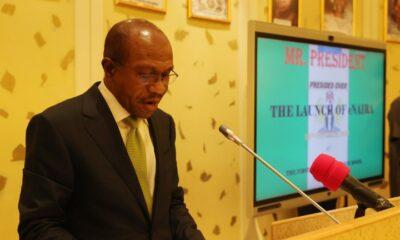- PoS Operators Lament CBN’s N50 Stamp Duty Charges, Call For Review
The Central Bank of Nigeria’s policy of N50 charges on every individual transaction above N1,000 carried out on the point of sales (PoS) machine has received heavy criticism from agent banking service providers.
The individual transaction and withdrawal through the use of (PoS) machine have enhanced and eased the banking system and also reduced the number of customers that visit the banking hall, queues at bank counters and the ATM machine centres.
The recent policy by the apex bank could be seen as a disastrous move mainly for the merchants, filling stations and supermarkets across the nation which also affected the enjoyment of cashless transactions.
The Effect of N50 PoS Charges
The N50 charge imposed on individual transactions above N1,000 is currently having negative effects since its implementation on September 17, 2019.
Agent banking service providers have been on the receiving end since the implementation of the policy with the mass exodus of bank customers who have resulted back into their conventional way of doing transaction and withdrawal.
The agent banking service providers lamented that the volume of electronic payments carried out daily had reduced drastically as a result of the new policy.
Also, many filling stations in Lagos and Ogun states expressed their dissatisfaction with the policy, explained that customers are reluctant in paying the N50 stamp duty which is really affecting sales.
Meanwhile, many Supermarkets in Lagos have refused to implement the new policy for the fear of how it will affect their sales and patronage.
The CBN New Policy
On September 17, 2019, the apex bank issued a circular which it authorised the banks to unbundle merchant settlement amounts and charge applicable taxes and duties on individuals as it reviewed the merchant service charge from 0.75 per cent (capped at N1,200) to 0.50 per cent (capped at N1,000).
The CBN directed all PoS and web processing officers to ensure that stamp duty was correctly processed daily by downloading transactions valued at N1,000 and above, multiply the count of these transactions by N50 and pass the corresponding debit to the respective merchant accounts.
Reactions To The N50 PoS Charges
The operators under the aegis of Association of Mobile Money and Bank Agents in Nigeria (AMMBAN) and business owners have all reacted to the new policy, all pleading that it should be reviewed.
According to the association president, Victor Olojo said the CBN’s policy is discouraging and will affect the apex bank’s efforts in encouraging cashless policy.
“It has grossly affected transactions. People now prefer to go back to the Automated Teller Machines rather than the PoS because of the charges.
“It is a big issue for us and we feel that the government needs to listen; that policy should be reversed. We have written a letter of protest to the CBN and other relevant stakeholders. We feel that the policy is anti-people because it is the same government that is driving financial inclusion that is also imposing this tax that is affecting those at the base of the pyramid.” he said.
Also, a mobile money operator with agents in five locations in Kwara and Oyo states, Mr Oluwasegun Abbey in an interview with PUNCH said the volume of transactions has reduced since the introduction of N50 stamp duty on individual payments.
He said, before the new policy, he conducted between 800 and 900 transactions daily across the five locations but it has reduced to between 600 and 700 daily.
Recall that the Nigeria interbank Settlement System (NIBSS) earlier this year released report revealing how the online transaction has increased and reduced the number of payment made by cheque.
According to the reports, the volume of transactions on PoS terminals across the nation rose to 187.7 million and the financial payments on the terminals were valued at N1.38tn.




 Naira4 weeks ago
Naira4 weeks ago




 Naira4 weeks ago
Naira4 weeks ago




 Naira4 weeks ago
Naira4 weeks ago




 Naira3 weeks ago
Naira3 weeks ago
 Commodities4 weeks ago
Commodities4 weeks ago


 News4 weeks ago
News4 weeks ago
 Travel4 weeks ago
Travel4 weeks ago




 Naira3 weeks ago
Naira3 weeks ago

















